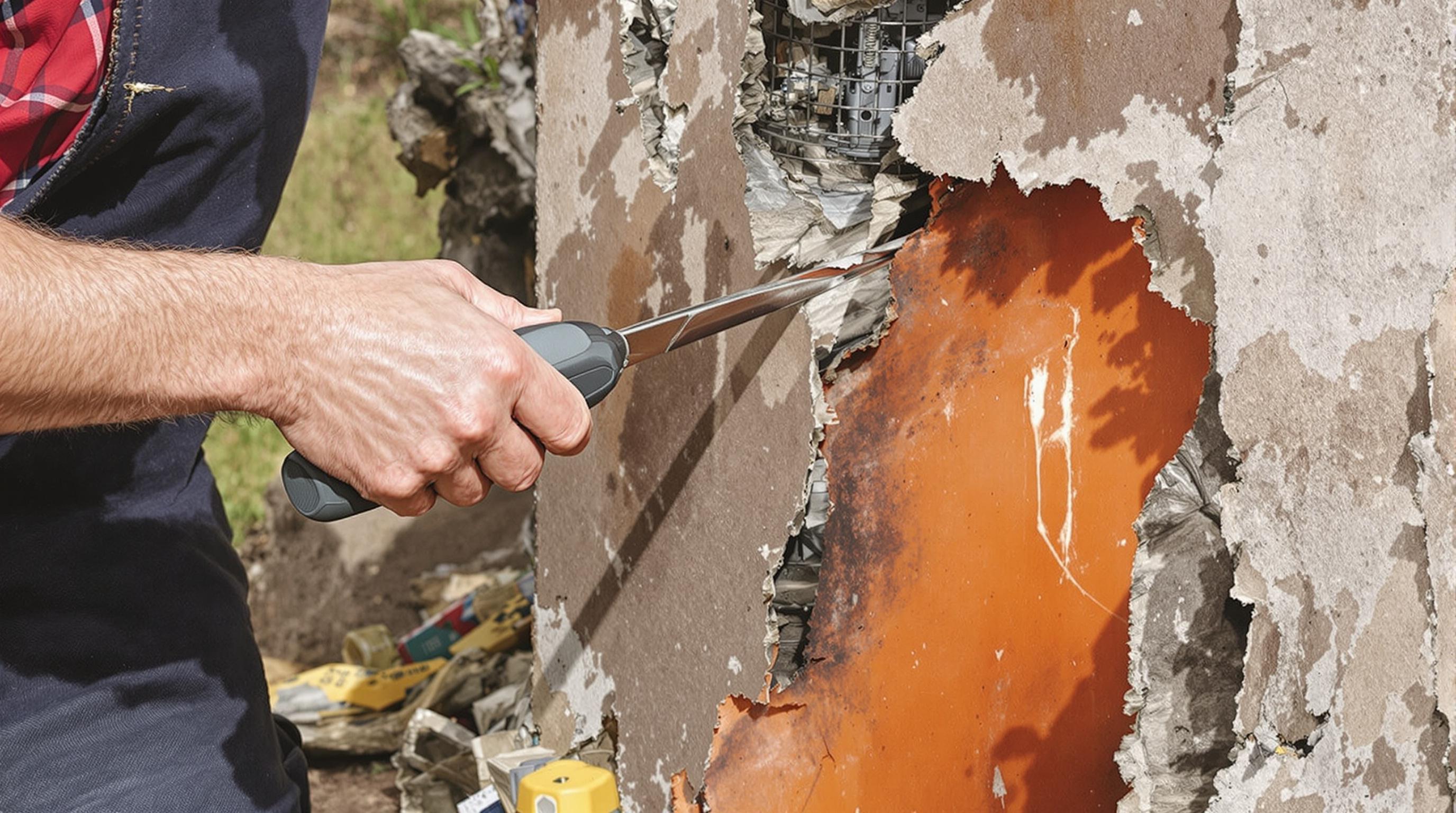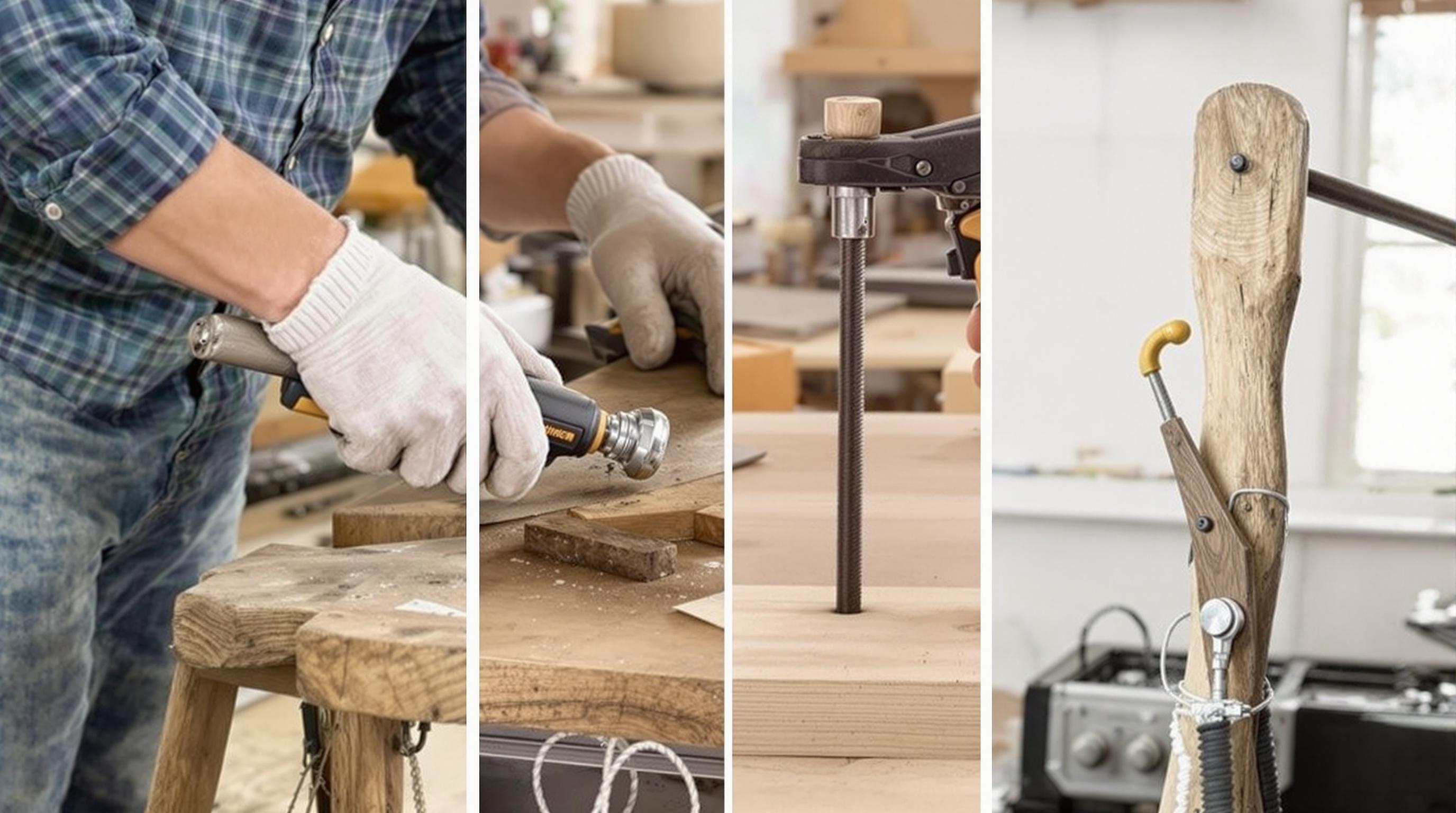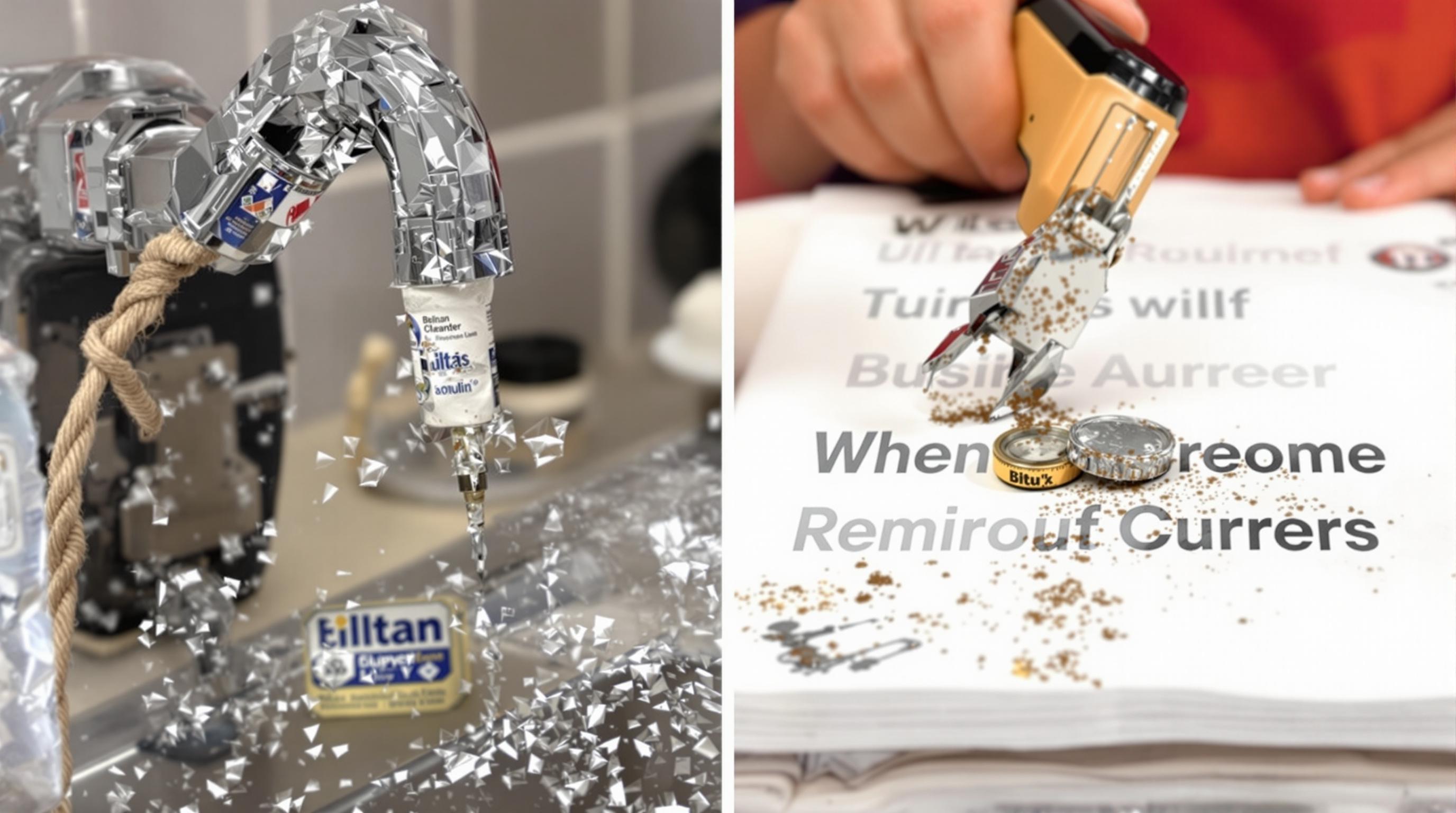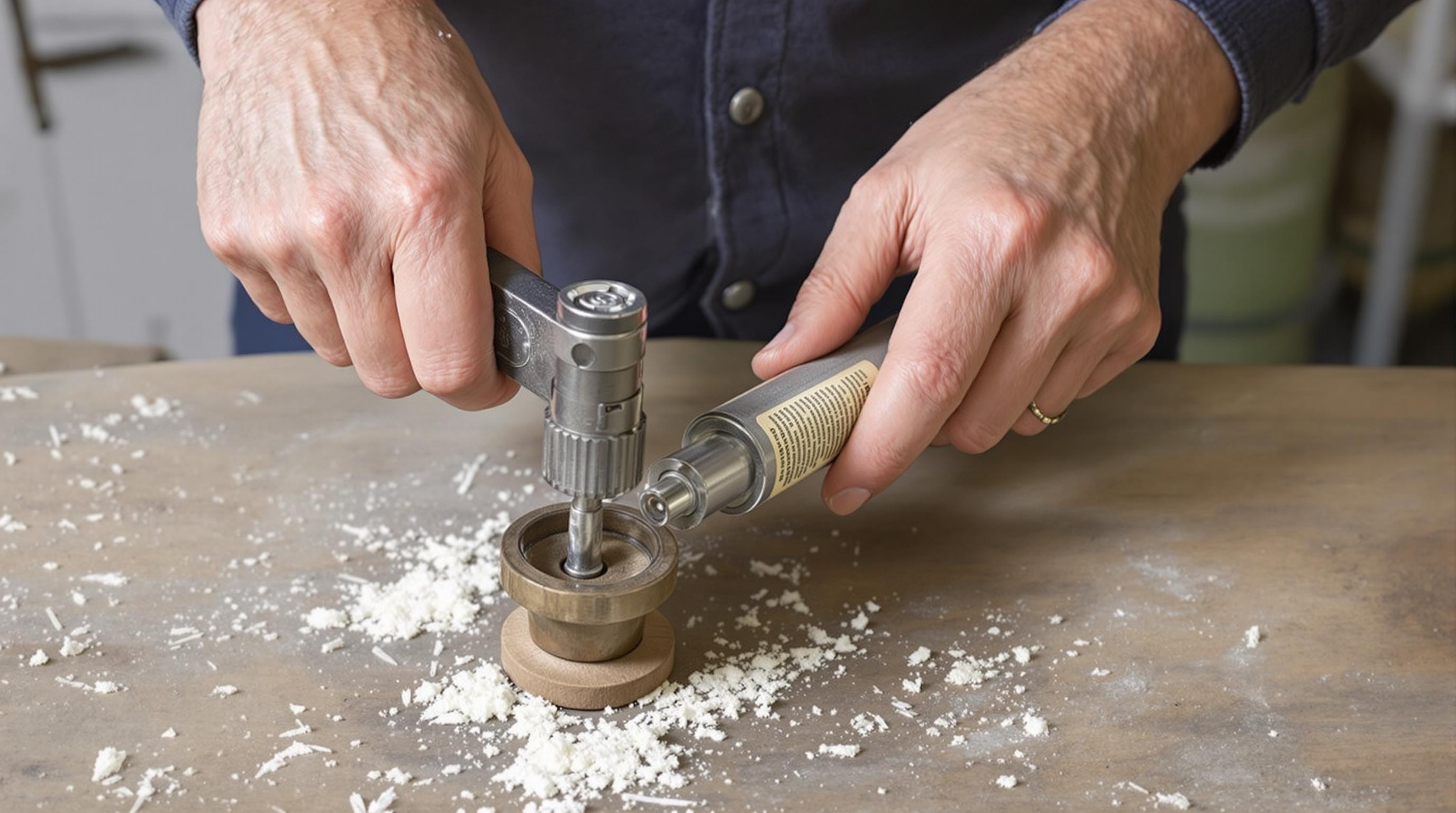Related Articles
- The Hidden Influence of Ergonomics: How Tool Design Shapes Our Physical Spaces and Daily Lives
- The Silent Influence: How Hidden Home Implements Shape Our Daily Routines and Spaces
- The Counterintuitive Role of Chaos: How Messy Tool Storage Can Lead to Unexpected Home Innovations
- Exploring the Unseen: How Audio Experiences Shape the Art of Domestic Spaces and Color Perception
- Rethinking the Mundane: How Everyday Objects are Becoming the Canvas for Modern Artistic Expression in Home Spaces
- Cultivating Chaos: The Surprising Benefits of Embracing Weeds in Your Garden Ecosystem
The Hidden Costs of Neglect: When Small Fixes Become Major Home Nightmares
The Hidden Costs of Neglect: When Small Fixes Become Major Home Nightmares
Neglecting small repairs around the house may seem harmless at first, but it can lead to catastrophic issues that are costly and stressful. This article delves into the hidden costs of neglecting home maintenance, illustrating how minor issues can spiral into major nightmares.
The Snowball Effect
Let’s face it: life gets busy. Between work, social outings, and everyday responsibilities, it’s easy to ignore that leaky faucet or that crack in the wall. However, according to a 2022 survey by the National Association of Home Builders, nearly 40% of homeowners reported regretting their decision to postpone minor repairs, only to see their homes deteriorate into significant problems.
Take the example of Sarah, a 35-year-old teacher. One summer, she noticed water stains on her ceiling but dismissed them. “It’s just a little leak,” she thought. Fast forward a few months, and she found herself dealing with a complete bathroom remodel due to extensive water damage. The small leak turned into a $20,000 project! The irony? A simple $10 caulk job could have saved her thousands.
Statistical Insights: The Cost of Procrastination
Statistics tell a compelling story about the consequences of neglected home repairs. A study from the Remodeling Magazine shows that homeowners often end up spending 38% more on emergency repairs compared to regular maintenance. This statistic serves as a wake-up call for procrastinators. A leaky roof, if addressed early, could cost around $300 to repair, but if left for too long, repairs can exceed $3,000—and that’s if you're lucky. Homeowners can avoid such pitfalls by adopting a proactive maintenance schedule.
Understanding the Underlying Issues
Identifying underlying issues is crucial. For instance, that seemingly benign crack in your wall could be indicative of a larger structural issue. A study by the American Society of Home Inspectors found that nearly 70% of home structural damage is the result of small, ongoing problems that were ignored over time.
The tales of homes like that of Michael—a 52-year-old retiree—highlight the tragic implications of ignoring small fix-ups. After noticing some odd noises in his basement, he chose to ignore them, figuring all homes make sounds. Eventually, it turned out that a major foundation issue was brewing. Not only did he have to face exorbitant repair bills, but he also had to deal with the added stress of relocating temporarily while repairs were done.
The Emotional Toll
It’s essential to acknowledge that the consequences of ignoring home repairs aren’t just financial—they're emotional too. Example: Jane, a 28-year-old graphic designer, experienced severe stress when her plumbing issues turned into a flood. “I remember waking up to the sound of water cascading,” she recalls. The unfortunate turn of events not only destroyed valuable possessions but also left Jane feeling overwhelmed.
Why Homes Crumble: The Four Major Villains
1. **Water**: Several studies have shown that 85% of water damage repair costs could be avoided by addressing minor issues promptly. This villain often starts small but can wreak havoc rapidly.
2. **Pests**: According to the National Pest Management Association, termite damage amounts to approximately $5 billion annually in the United States. A tiny colony of termites can drastically transform your home in mere months.
3. **Poor Air Quality**: Ignoring HVAC maintenance can lead to poor air quality, which may pose health risks. In fact, the Environmental Protection Agency indicates that indoor air can be two to five times more polluted than outdoor air. Regular filter changes and vents cleaning can prevent serious respiratory issues.
4. **Lack of Insulation**: Neglecting proper insulation can send your utility bills soaring. According to the U.S. Department of Energy, poorly insulated homes can waste 20-30% more energy than well-insulated ones. A simple routine check would help identify areas needing improvement.
Staying Ahead of the Game
If you’ve been inspired to tackle those nagging repairs, here are some tips that can help:
- Create a maintenance checklist: Use tools like calendars or apps to remind you of monthly and seasonal tasks.
- Prioritize small fixes: Don’t underestimate the small stuff. Fix any leaks immediately and inspect your home regularly.
- Consult professionals: If you’re unsure, hiring a home inspector can be worthwhile. They can preemptively identify potential issues.
DIY vs. Hiring Professionals: A Costly Decision
The duality of “Do It Yourself” and hiring professionals comes into play when considering home repairs. On one hand, you can save money by doing repairs yourself; however, without the right expertise, small mistakes can lead to even larger expenses. The DIY Network states that 40% of DIY projects often require a professional's help in the end—an indicator of potential hidden costs.
Jamie, a 23-year-old engineering student, learned this the hard way when attempting to install a new sink. His lack of experience led to water running onto the floor and causing damage. Ultimately, a $200 DIY project turned into a $1,500 repair when it was all said and done. Sometimes, paying for the expert might be the best move you can make.
Creating Your Maintenance Calendar
The idea of keeping a maintenance calendar may sound tedious, but the time invested can pay off substantially. Choose easy months to remember and start with tasks you believe you can handle. Here’s a simple breakdown:
- Month 1: Change HVAC filters and inspect ducts.
- Month 2: Check and clean gutters.
- Month 3: Inspect lawn for pest control needs.
Making this a family project can ease the burden and create shared responsibility. Involve your kids or partner and turn chores into a fun initiative, like a “Home Maintenance Day.”
Conclusion: The Cost Is Too High
Understanding the hidden costs of neglecting small repairs is crucial for homeowners of all ages. From emotional stress to financial burdens, ignoring minor issues can lead to disastrous consequences. Ultimately, investing in regular maintenance is an investment in peace of mind and security—both for your home and your sanity.
In summary, try to keep on top of small repairs as they arise. It may seem like an inconvenience at times, but the cost of inaction is, more often than not, far greater than the cost of taking care of things promptly. So, how about that leaky faucet?





